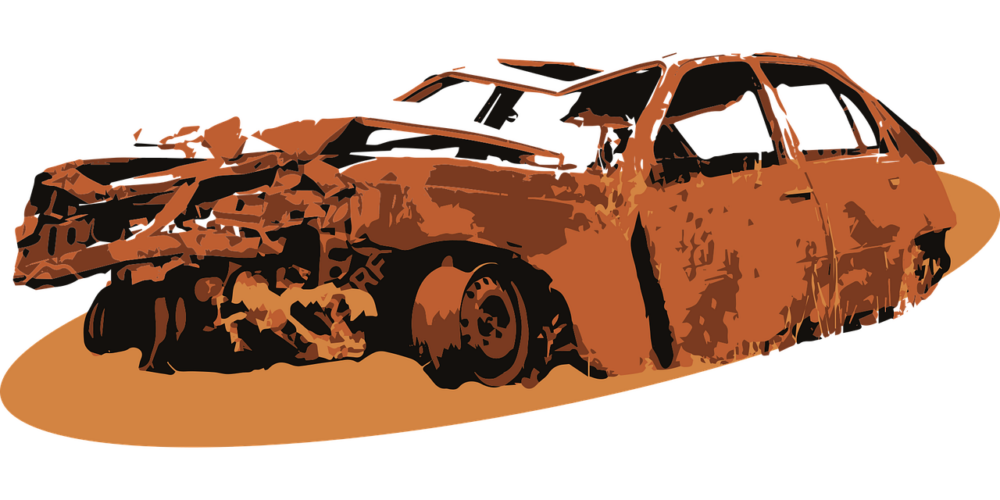It’s not just the drivers who lost control—we all did.

Kenya’s road carnage continues unabated. It has always been thus, since I was a child. Thousands die every year in unnecessary road crashes. Innocents—passengers, pedestrians, roadside vendors—have their lives cut short year after year.
A survey run by the Kenya Red Cross a decade ago told us that most of those who die are vulnerable road users such as pedestrians or cyclists, who have usually had nothing to do with causing the crash. One third of fatalities are innocent passengers, many killed using unsafe public transport. Nearly half of fatalities are children and young adults. The effects go beyond the immediate casualties. Breadwinners are often lost, leading to continued difficulty for large numbers of family members.
For some reason, we continue to frame the continuing deaths and destruction on our roads in peculiar ways. A major incident on our roads is always termed an “accident”; and we always seem to read that it occurred because the driver “lost control.” This suggests that the event was a mishap, a misfortune; and that its occurrence was somehow beyond the driver’s ability to prevent.
No, folks. The cause of our obscene road incidents is not someone “losing control” on the day in question. Nor are these “accidents” occurring at some naturally expected rate. There’s something entirely different going on here.
Our road fatalities are no doubt under-reported, but even official figures suggest that the number of annual deaths per capita is terribly high—perhaps ten times those of nations with the best road safety records. So there’s nothing natural about this problem. It does not stem from the cruelty of the heavens; it’s more about the failures of humans.
In countries that care about road safety, even a cracked brake light earns you a reprimand and a fine, as I found out to my cost many years ago in a faraway land. In a land that doesn’t care, anything goes.
If being drunk behind the wheel is acceptable and natural behaviour, then sure, our drivers regularly lose control. If we cannot as a society monitor and control the roadworthiness of our vehicles or the loads being carried by them, or the build quality of our roads, then yes, control has indeed been lost. Not just by drivers, mind, but by all those paid and tasked to regulate and manage our roads and traffic.
Let’s take it further: it’s not just regulators and watchdogs who have lost control, but society as a whole. We lost control over the basics of governance way back. We elect and appoint and tolerate and champion mediocrity and incompetence, across the political divide; we even celebrate it.
What is to be done? Ah, here’s another part of the framing we seem to love. Immediately after a particularly gruesome road incident, many leaders will step up to “issue directives.” They have been doing so for decades, yet our statistics never get better. This is because those directives are shouted into a void.
I have written here before: directives and action plans are meaningless unless they are driven by values and purpose. A problem in society has to trouble us deeply for us to do something about it. And so we must ask ourselves: do we actually care about this mayhem? Or do we just shake our heads, look away, and forget after every major occurrence? Do we actually want to solve this?
If our actual purpose is road safety, then we cannot tolerate shoddy roads, third-rate equipment, blatant roadside corruption, uncontrolled licensing of drivers and vehicles, or perpetrators walking away scot-free. If we are serious about the safety of Kenyans on our roads, then we will put serious people in charge, and remunerate them properly. We will set standards for drivers, vehicles, and roads—and uphold them at all costs. We will root out corruption in the sector, at all levels.
If we are not serious, however, then let’s stop pretending to be. Let’s accept that control will remain lost, as will lives and livelihoods.
Solving this problem requires taking back control. Not just by drivers of vehicles, but by those who drive our economy; those who drive the values of our society; and those who drive our standards and control systems. The leaders, in other words. Are they willing to take back control, starting from very high up? What needs to be done is not a mystery. Finding the gumption to do it? That’s another matter altogether.
(Sunday Nation, 16 July 2023)

Buy Sunny Bindra's new book
The X in CX
here »
Popular Posts
- Where are you rushing to—your funeral?June 29, 2025
- How to spot a real thinkerJune 15, 2025
- The map will appear—once you start walking.July 6, 2025
- Built the app, forgot the flowJune 22, 2025
- The pause that saves usJune 8, 2025















